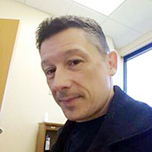Earning your Masters in Social Work is a very rewarding endeavour. The Association of Social Work Boards (ASWB) Master of Social Work certification enables you to help people in very meaningful and impactful ways.
So, what’s the path to certification like? I’ll share my journey and the tips I learned along the way.
My Path To MSW Certification
I spent two years in academic study and a similar amount of time in a difficult but rewarding practicum setting before taking my Masters of Social Work certification exam. I knew passing the exam was the gateway to my first license in the behavioral sciences and the capstone of everything I had been doing with my life for two years.
On the day of the exam, I definitely had butterflies. As most know, the MSW exam is pass/fail, and you’ll receive your results before leaving the testing center. In four hours or less, I would know: I would either have passed an essential hurdle on the way to the behavioral science credentials I had been working toward for so long or not.
Anyone who has been in that situation knows that it’s virtually impossible not to be a little nervous. After all, if you are taking the test, then you have invested a fee, substantial preparation time, and special arrangements that have taken you away from your normal routine.
A passing result means a favorable change in job prospects and the validation of one’s academic and practical work in the field; a failing result may mean placing important career moves on hold.
Dealing with Test Anxiety
It is possible to be very prepared for the test and still be anxious. You may be a person who does not take standardized tests well, or you may be someone who does not do well in quiet, restricted, and monitored surroundings. There are a few steps that anyone can take that will help you on the day itself:
Have a personal testing plan
Know yourself and how you handle anxiety, and prepare accordingly. Everyone deals with stress and anxiety in a slightly different way; are you prone to undersleeping or oversleeping? Are you prone to catastrophizing or self-doubt? Has overconfidence produced undesirable results in the past? Are you better in the morning or the afternoon?
Think carefully about how you approach situations like the exam and do whatever is necessary to give yourself the best chance for success. Such a plan could include a study schedule, sleep hygiene, exercise, or nutrition—the point is to make it yours. The effort you spend developing your plan may also increase your confidence by making you feel more organized and prepared.
Handle the basics
When we are anxious, our minds love to elevate the intensity of the normal signals our body is giving us. Though it sounds intuitive, getting the basic things right can have a major effect on how you perform.
Your mother was right—sleep well, eat enough, and manage any other biological needs before you get into the testing room. Take care of those bills or phone calls before you start—you want your mind able to focus on the exam and only on the exam.
Know your stuff
By far, the best antidote for test anxiety is to feel as though you know the material. It’s impossible to know precisely how questions will be asked or how your specific test will include the KSA’s (discussed below). What you can know and manage is your feelings about the material. The more confident you are about your grasp of the content, the better you will perform.

Study Strategies
Know the content areas covered by the exam
The Association of Social Work Boards publishes a list of KSAs (Knowledge, Skills, and Abilities) for every level of licensure exam. This is the outline for the MSW exam as of August 1, 2026.
The three main areas of the exam cover:
I. Values and Ethics (35%)
- Apply legal and ethical standards related to confidentiality, informed consent, and professional responsibilities.
- Identify and resolve ethical dilemmas while upholding core social work values and promoting client well-being.
- Maintain appropriate professional boundaries and uphold client self-determination in service delivery.
- Follow requirements for documentation, mandatory reporting, billing, supervision ethics, and electronic practice.
- Use anti-oppressive, anti-racist, and social justice-oriented approaches that recognize culture, identity, intersectionality, and inequity.
II. Assessment and Planning (33%)
- Use assessment concepts to gather relevant biopsychosocial information and understand client systems.
- Apply appropriate assessment methods, tools, and techniques to identify needs, strengths, risks, and service priorities.
- Interpret assessment findings to inform collaborative goal setting and planning with clients/client systems.
- Develop service, treatment, or intervention plans that reflect client goals, evidence-based practices, and ethical standards.
- Reassess and revise plans as needed based on ongoing evaluation and client feedback.
III. Intervention and Practice (32%)
- Apply practice concepts such as engagement, rapport-building, strengths-based approaches, interdisciplinary collaboration, and service navigation.
- Use a variety of intervention methods and techniques, including evidence-based therapies, crisis intervention, trauma-informed care, and harm-reduction strategies.
- Implement case management tasks such as goal setting, documentation, coordination of services, advocacy, and discharge planning.
- Support clients experiencing grief, loss, addiction, conflict, or behavioral regulation challenges using appropriate clinical and supportive techniques.
- Use evaluation methods to assess intervention effectiveness, support program evaluation, and guide practice improvements.
Assess your level of comfort with each KSA
Plan your study accordingly. Go through the list of KSAs and honestly assess your level of proficiency with each item on the list. Highlight those areas where you feel the weakest and make them a focus of your preparation. If you feel very strong on crisis intervention, move on to something else.
The goal here is twofold: to shore up areas that you may not have been exposed to as much and to give yourself the all-important feeling of confidence that comes from directly addressing areas you’ve identified as vulnerabilities.
Know how the questions are asked
There are some questions that test recall, but many will be applied scenarios in which you will be asked to make judgments based on limited facts. Many social workers find these types of questions frustrating and difficult because, in our profession, we are used to operating with much more context than will be offered.
Don’t panic! Try to identify what the question is getting at; is it testing your knowledge of social work values? Is it looking for your knowledge of the age of consent? Focus on what the question is about rather than on what it says.
Engage in good, challenging test preparation
Pocket Prep can help prepare you by providing you with challenging test preparation taken directly from the KSAs and informed by the latest study guides. Each question comes with a detailed answer explanation so that you learn something valuable even by missing your practice questions. Again, the practice of preparation will build your confidence.
Don’t try to memorize everything
You should try to shore up areas of knowledge about which you feel less confident, but the test is more about applying the knowledge you already have.
Be social!
You probably have colleagues or classmates who are already involved in studying for the exam. Form study groups where you can compare notes and boost mutual confidence.
One great study technique is teach-back—find a concept you are shaky on and make yourself able to explain it to a colleague, who can then ask you questions. It’s been often said, very truthfully, that there is nothing like teaching a topic to make you know that topic.
Exam Day
Know the structure of the exam
The MSW test consists of 122 multiple-choice questions (110 scored and 12 unscored, pretest questions) that must be completed in four hours. The questions are in random order by KSA, so don’t be thrown if you get a question about medication followed by three questions about defense mechanisms.
Keep an eye on the clock
Don’t be intimidated by the number of questions you have to answer. In all likelihood, you will have time not only to answer your questions but also to go back and review your answers.
Some test takers find it helpful to quickly go through the items they find easy and ‘flag’ the more challenging items to return to later. Just remember to answer every question—statistically, any answer is better than no answer at all.
Use the resources you have, prepare in your own way, and you can experience what I experienced on that day long ago: walking out of that room with a challenging exam in the rear-view mirror with more significant challenges and successes to come.


